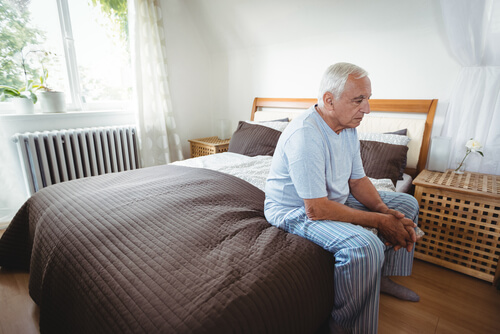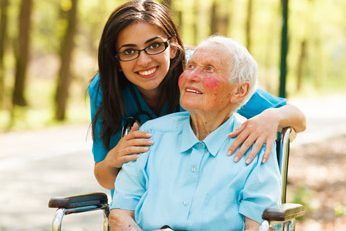
12 Warning Signs of Depression in Seniors
More than two million seniors over the age of 65 struggle with depression. Unfortunately, the symptoms of the condition can go undetected by family members – and even seniors themselves – for weeks, months, or years, if they are ever detected at all. In many cases, the red flags are overlooked as simply signs of aging, but there is a stern difference. It is important for family members to understand the warning signs of depression in seniors and to seek out help as soon as possible.
Warning Signs of Depression
When most people think of depression, they think of sadness. While this is true for most age groups, many seniors struggling with the condition don’t necessarily feel sadness. Instead, they claim to lack both energy and motivation, and they find it difficult to enjoy day-to-day life. This certainly doesn’t mean that they can’t feel sadness if they are depressed, only that the absence of sadness does not exclude depression.
Here are some common warning signs of depression in seniors:
- Difficulty sleeping at night
- Neglect of personal hygiene
- Sudden and unexplained weight loss
- Overwhelming feeling of hopelessness
- Neglect of basic household chores
- Trouble concentrating
- Fatigue
- Irritability/unusual mood swings
- Loss of interest in favorite hobbies
- 10.Avoidance or lack of socialization
- 11.Increase use of alcohol or drugs
- 12.Suicidal thoughts
Causes of Depression in Seniors
There is rarely one cause for the onset of depression, although it can be a side effect of several types of medication. Depression can be genetic and it may have gone undetected for many years. For many seniors, depression is brought on by a combination of issues, such as grief, the shift into retirement, medical issues (such as heart disease, diabetes, CLRD, dementia, stroke, cancer, among others), limited mobility, and lack of socialization. The inability to cope properly with these issues and changes can result in depression. In many cases, the state of depression will only worsen over time if not treated and dealt with.
Find the Support You Need
Whether you think you might be struggling with depression yourself or you have a loved one you are concerned about, your first step is to seek out professional help. Make an appointment with your primary care doctor and tell them your concerns. The doctor can perform a complete examination to ensure there are not any medical issues, such as an interaction with medication, that may be causing the change in mood or behavior.
If your doctor agrees with your assessment, they may prescribe an antidepressant to help alleviate some of the symptoms. They likely will encourage you to seek additional support through a trained therapist or counselor. Therapy sessions will give seniors a chance to talk about their feelings and provide them with valuable coping tools they can use to deal with the various changes and struggles in their lives.
Most importantly, don’t be afraid to ask for help. Home care services can provide the additional support you need at home. Even having a home caregiver come to your home just a few hours a day can be a tremendous help. Caregivers can help with basic household chores, provide transportation, ensure personal hygiene tasks are completed, distribute medication and provide valuable companionship to make sure you receive the daily socialization you need.
Depression is nothing to be ashamed of. Instead, it is best to face the problem head on, seek medical treatment as soon as possible, and always ask for help when needed.






